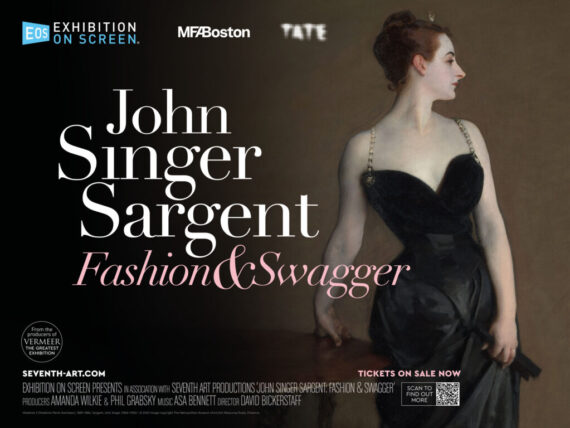by Helen Tope
Spencer is screening at Plymouth Arts Cinema from 3-9 December, with a Bringing in Baby Screening on 8 December.
Focusing on three days over Christmas 1991, Spencer is a unique take on the Princess Diana story.
Directed by Pablo Larrain, Spencer leans into the claustrophobia of living inside the Royal bubble. Diana, now mother to William and Harry, has stepped out from her initial role as blushing bride. She is by this point a global player, the most photographed woman on the planet. But beyond the optics is a woman living with an eating disorder, with little support or sympathy from those around her.
Based at Sandringham, this is not a lovingly detailed recreation of the Royal Family, in the style of The Crown. The film – dark, dour and macabre – centres around the core relationship of Charles and Diana. The other Royals are represented in body rather than spirit. Spencer frames them as a group; rarely speaking, mutely observing. Larrain’s monarchy are as much limited by their traditions, as they are defined by them.
Larrain’s vision rests not just on the opulence of a Royal Christmas (lobsters and soufflé to order), but on the protocol that must be followed. Diana’s fabulous wardrobe looks so inviting when it is wheeled into her room, and the camera rests on the labels attached to each outfit. Each one has been assigned to a particular day or event. There is an insistence that everything must be worn in the right order. When Diana wears her Boxing Day coat on Christmas Day, it is noted.
The challenge in telling Diana’s story, in particular the events leading up to her divorce, is that we know what happens. Larrain already has form in this area – one of his previous credits is Jackie, the psychological portrait of a grieving First Lady – and his strategy for Diana follows much the same outline. This film is not a standard biopic, and veers sharply from our expectations. With a melodramatic script and Jonny Greenwood’s constantly edging, unsettling score, Spencer firmly embeds itself within the horror genre.
Spencer digs into Diana’s nightmare of constant scrutiny. As the family leave church after Christmas Day service, a bank of photographers wait for her. Larrain turns the camera on them – they are portrayed as a seething, many-headed creature; shouting and jostling to get the best picture. There is not only a concern that photographers are attempting to get photos of Diana at Sandringham (so much so that head of household, Major Alistar Gregory, insists on her bedroom curtains being sewn shut) Diana is even being monitored by the staff.
In a classic horror twist, Diana finds a book on Anne Boleyn in her room, and comments on the ancestral connection between the Spencers and the Boleyns. In her fragile state, Diana ponders the fate of Boleyn and begins to see the executed queen as a metaphor for her own precarious position.
Spencer illustrates Diana’s isolation most acutely through her eating disorder. An open secret within the Royal Family, Spencer graphically shows Diana in the grip of her disorder, and the impact this has on her mental health. The panic Diana feels when being asked to join in a tradition of being weighed (guests must gain a minimum of 3 pounds to show they’ve had a good time) is palpable. Diana’s relationship with food is complicated, not least in her surprising friendship with Head Chef Darren (played by Sean Harris). But as she tries to negotiate her way through Christmas, Spencer layers on a constant drip feed of misery.
Kristen Stewart may not seem the most obvious choice to play Diana, but thanks to a diligence in getting the accent right (Stewart took 6 months to perfect Diana’s voice) and superb work from Hair and Make-Up, Stewart’s transformation is impressive. The mannerisms are there, but never overdone. Stewart’s performance elevates the film, and the Oscar buzz surrounding her is well-justified. Stewart wisely doesn’t rely on nostalgia alone, but builds her version of Diana from the ground up. This is a flawed, contradictory person – leaning too heavily on her eldest son for support – but Stewart also conveys a woman who recognises her own power and influence. In her ghostly encounters with Anne Boleyn, Diana is able to differentiate between Boleyn’s helplessness and her own, significant potential.
Spencer is a film with good ideas, but they don’t all join up. Timothy Spall does the best he can with the role of the Major, but the quiet menace ends up feeling more pantomime villain. It is the heavy-handed quality of the script that disappoints: screenwriter Steven Knight steers us into melodrama too often, when the bare facts of Diana’s story are extraordinary as they are.
As an experimental look at the biopic, Spencer’s psychological intensity can, and should be, read as an offshoot of the horror genre. However, even with a stunning lead performance at its centre, Spencer is less than perfect. But if you are willing to take it on its own terms, the film has plenty to say about monarchy, family and the price to be paid by newcomers.









Comments
No comment yet.